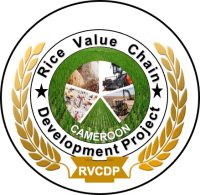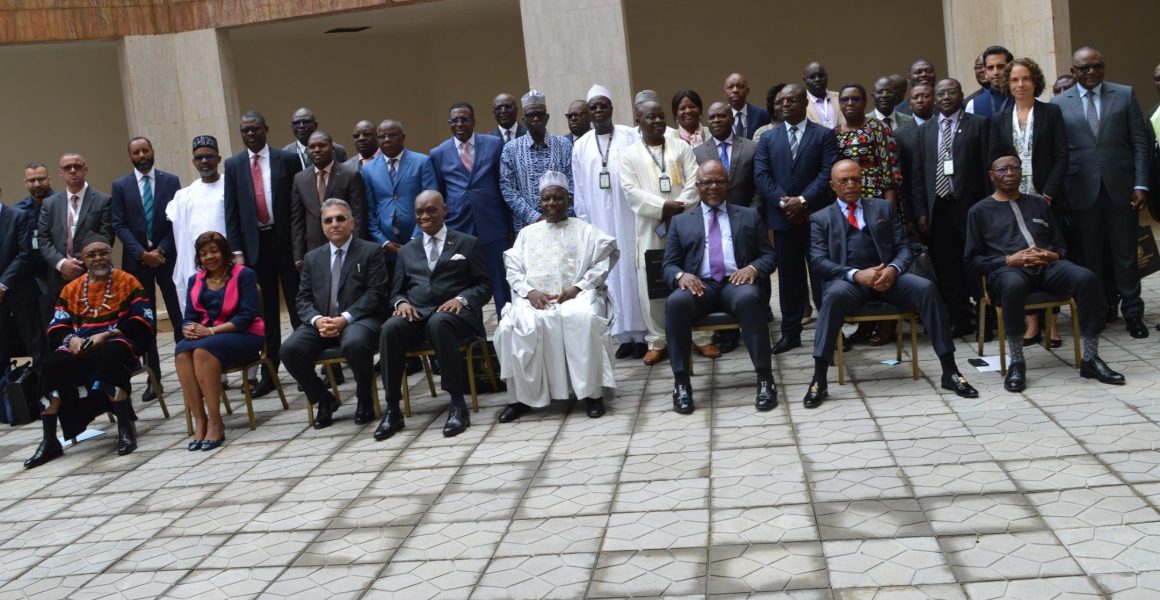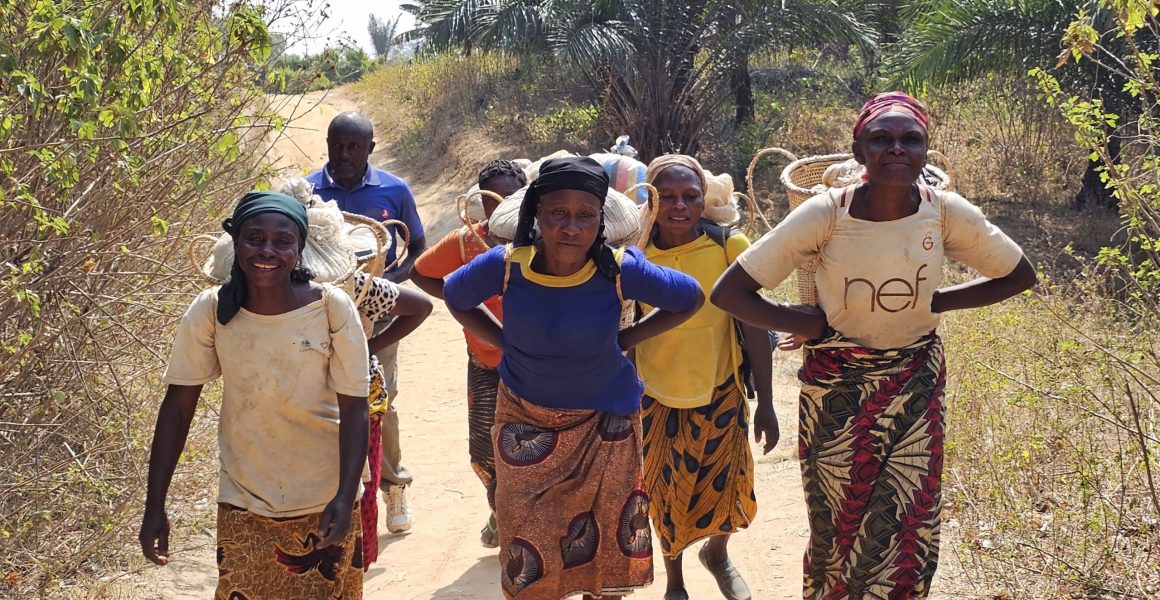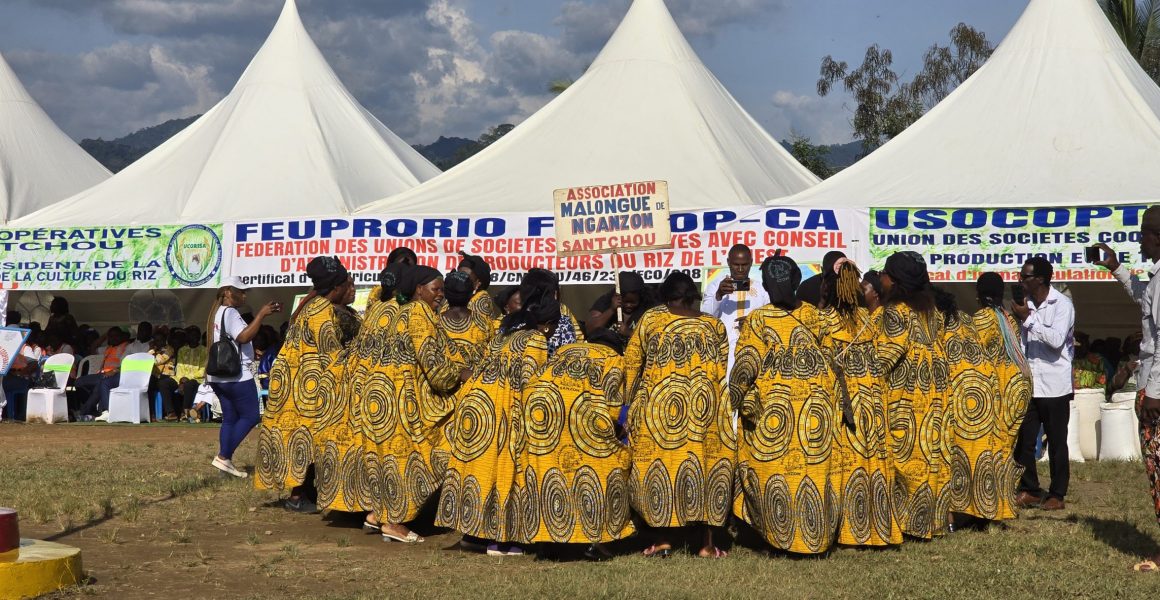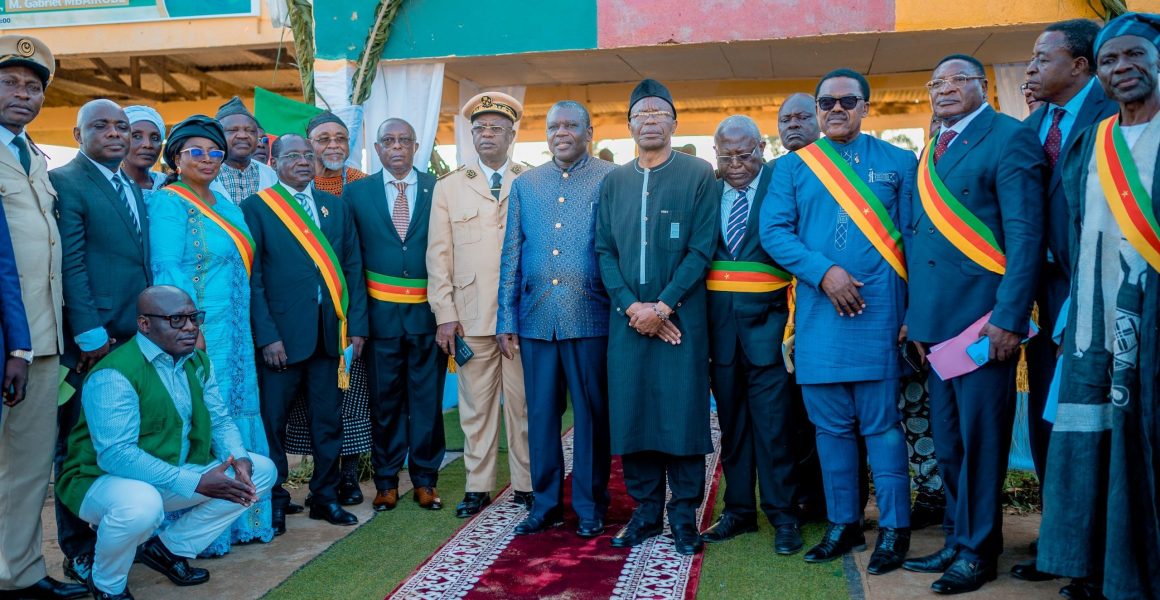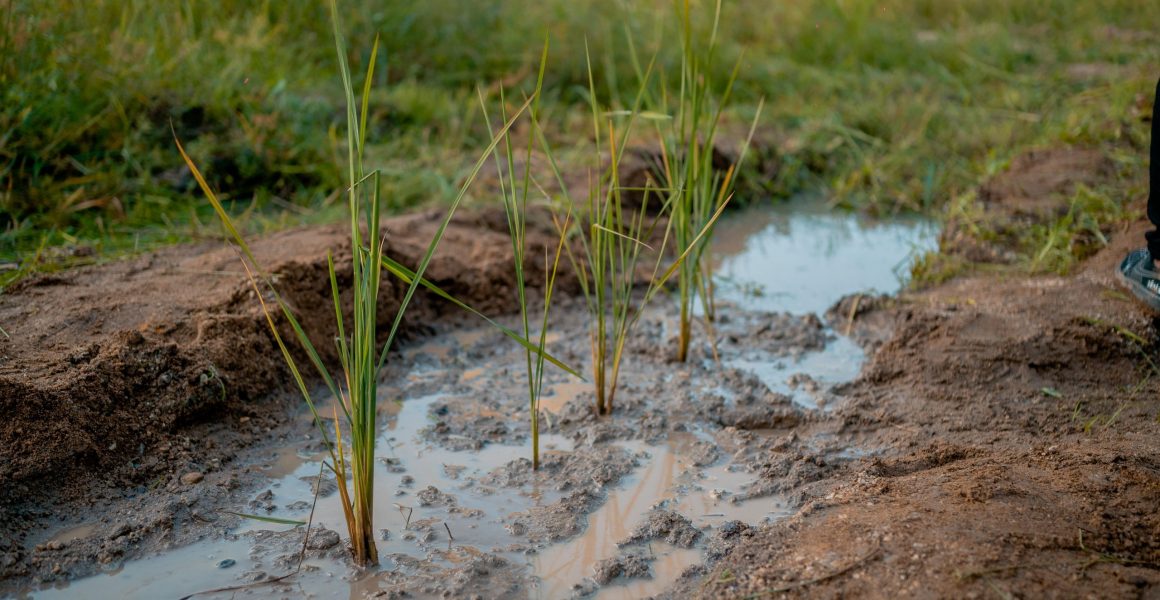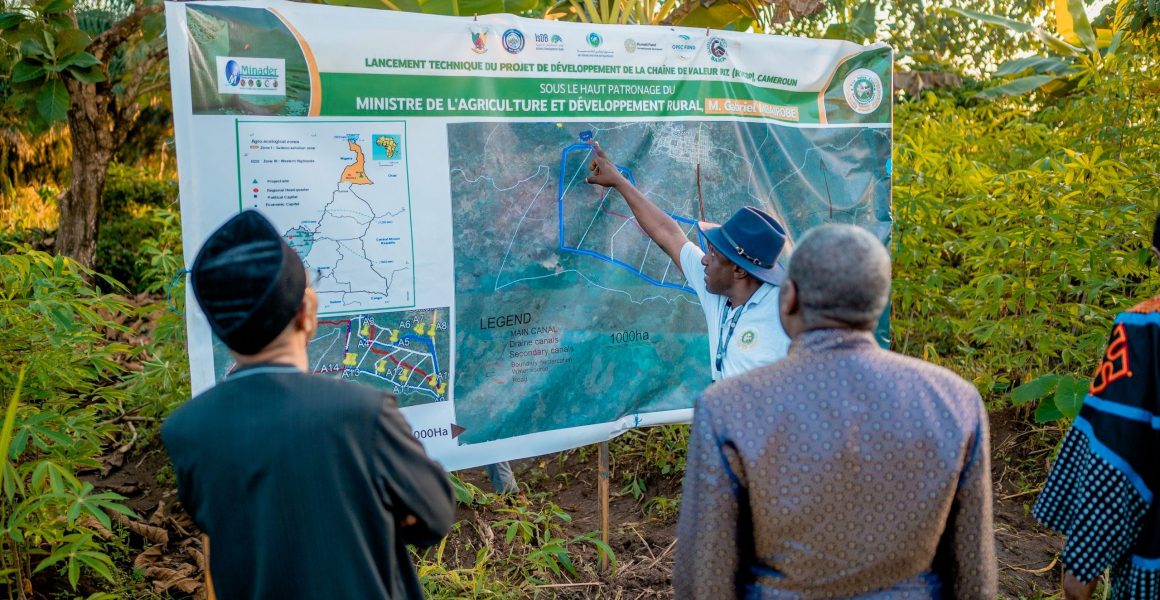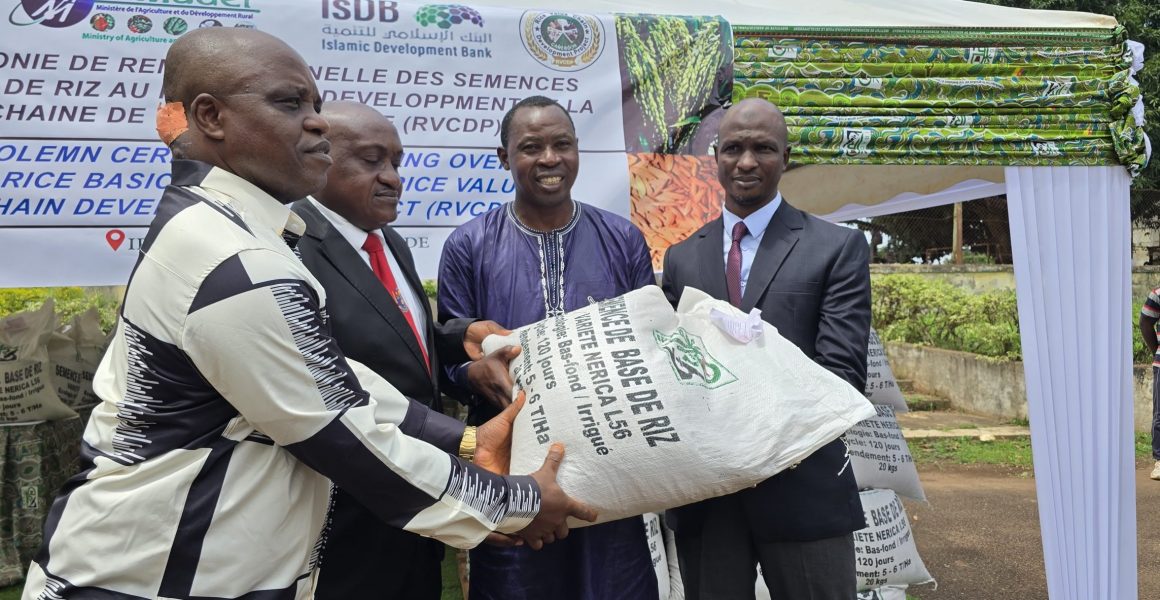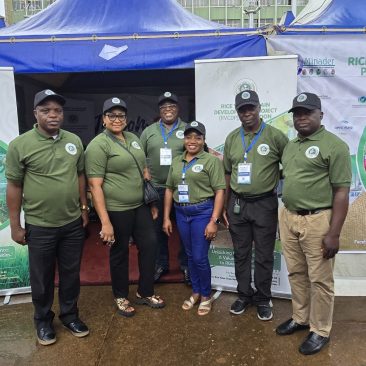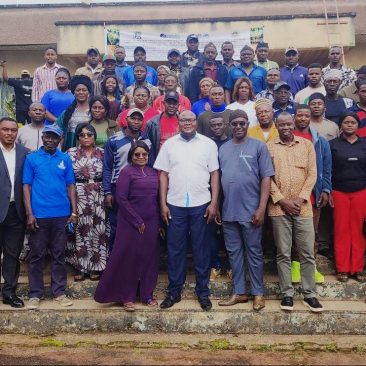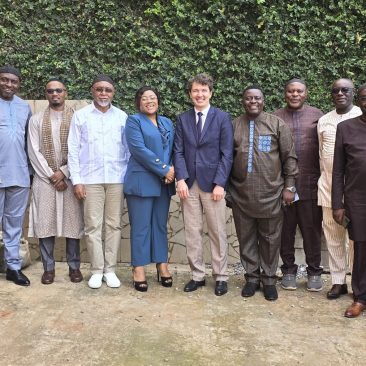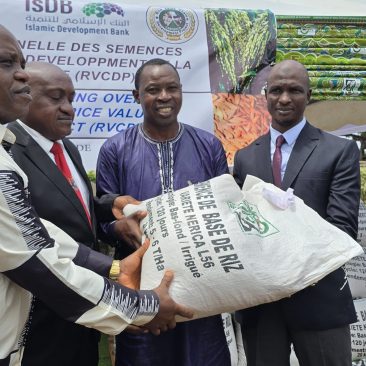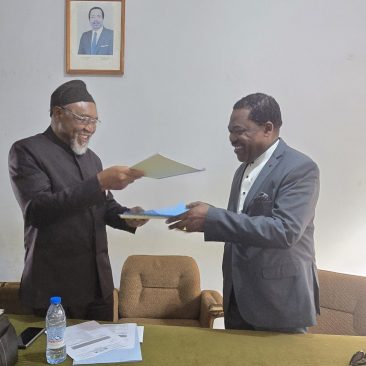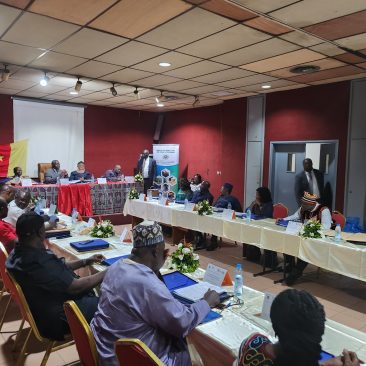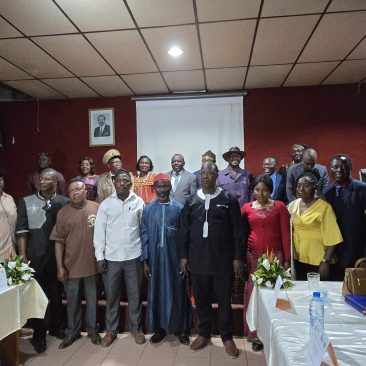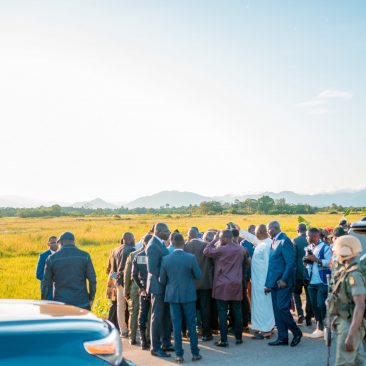4.5 Tons of Basic Rice Seeds now Available for Propagation
The RVCDP has received 4.5 tons of basic seeds from the Institute for Agricultural Research for Development, IRAD. The seeds which can be planted on about 90 hectares of land, represents 50% of the quantity of basic seeds that IRAD is expected to provide to the RVCDP within a period of three years, as stated in the protocol agreement signed between IRAD and the RVCDP. (Read more here).
Islamic Development Bank Completes Supervisory Mission in Cameroon
‘Satisfactory’ is the term used by the head of the Islamic Development Bank mission to Cameroon, Mr. Daniyar Abylkhan, upon completion of their supervisory mission to Cameroon from May 24th-31st, 2025. The Islamic Development Bank (IsDB) supervisory mission to Cameroon was aimed at assessing the progress of the Rice Value Chain Development Project and presented an opportunity for stakeholders to discuss issues and agree on the required solutions and follow-up actions with the aim to prepare the Project Implementation Assessment and Support Report (PIASR) of RVCDP. This mission marks a significant step in ensuring the project’s objectives are met and that stakeholders remain aligned with its goals. (Read more here).
Empowering Women through Rice Production in Sabongari, Mbaw-Mbonso, Ntabah and Wajiri in the North West Region of Cameroon.
In the North West Region of Cameroon lies the vibrant communities of Sabongari, Mbaw-Mbonso, Ntabah and Wajiri where women are playing a remarkable role in rice production. Their contribution in this traditionally male-dominated sector has not only transformed the local agricultural landscape but has also brought about socio-economic empowerment.
Women in these areas have embraced rice farming as a primary means to improve their household income, ensure food security, and gain financial independence. They actively engage in various stages of the rice production process, from land preparation and planting to harvesting and processing. This active participation has empowered them with invaluable skills, knowledge, and experience, enabling them to become self-reliant and make significant contributions to the local economy.
Traditionally confined to household chores, women are now recognized as equal partners and in most areas, dominant partners in agricultural activities. This shift has not only improved gender dynamics within families but has also inspired other women in these areas to pursue economic opportunities and challenge traditional gender roles.
Additionally, women’s participation in rice production has enhanced food security in these areas. Their active engagement has increased rice production, resulting in a more abundant food supply for the community and especially to neighboring Nigeria, which is the biggest market for rice produced in these areas, created opportunities for trade and income generation, further strengthening the local economy.
The involvement of women in rice production has not only transformed individual lives but has also contributed to the overall development of these rice farming communities. The income generated from rice farming has been invested in education, healthcare, and other essential services, leading to improved living standard, as some have changed their thatch houses to brick houses with zinc rather than thatch roofs. Futhermore, women have joined cooperatives and support networks, allowing them to share resources, access credit facilities, and advocate for their rights collectively.The role of women in rice production in Sabongari Mbaw-Mbonso, Ntabah and Wajiri, North West Region of Cameroon, as well as other rice farming communities under the Rice Value Chain Development Project, serves as a powerful example of their resilience, determination, and capacity to drive positive change. Recognizing and supporting the contributions of women in agriculture is crucial for sustainable development, gender equality, and the overall well-being of societies. The success of women in rice farming serves as an inspiration and a call to action for other communities to follow suit.
